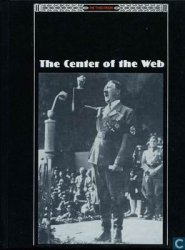
The Debating the Past essays in previous chapters have offered hundreds of interpretations, many of them contradic-tory. Why, if historians are looking at the same past, do they see it so differently?
Consider the accompanying photograph. It shows a cityscape as reflected on the many windows of a new skyscraper. Each pane of glass has its own angle of reflection, imposing unique distortions on the scene; note that one window—all black—is open, about to receive a pipe. Historians, too, look at the past from different perspectives, and sometimes crucial pieces of evidence are missing.
Well into the twentieth century, most historians believed that their collective labors—more research, more books—were leading to a composite picture that provided a fuller and clearer rendering of the past. But some historians have doubted whether their profession can sharpen the picture's focus, or whether a coherent vista of "the past" even existed. If our own lives are a jumble of motivations and confu-sions, how can one paint a portrait of an entire people?
In an exhaustive study of the American Historical Association, Peter Novick (1988) further demonstrated that while historians have long championed objectivity in principle, their research has been riddled with bias. Ignorant of their cultural blinders, historians grope in search of historical truths they can never see.
By undercutting their profession's claims of "truth," Novick's book made historians more susceptible to an idea that was sweeping through literature departments. Known as "deconstruction"or "textualism"and derived from French philosopher Jacques Derrida, it held that "there is nothing outside the text."(Or, to use the metaphor of the photograph, there is nothing beyond the reflections.) No one could reasonably claim to know what a novelist meant by any novel, or what any statesman or historical figure meant by the words he or she spoke or wrote. By extension, no historian can explain what any historical record meant to the people of the times it reflected. Inspired by such observations, Robert F. Berkhofer Jr. (1995) repudiated the very idea of a grand historical narrative, partly because readers would interpret that narrative in their own ways.
Raising Berkhofer's contention at the end of a book that purports to provide just such a narrative may seem perverse. But his point contains an obvious truth:
Readers of any work of history, this one included, will make of it what they will.
Source: Peter Novick, That Noble Dream (1988); Robert F. Berkhofer Jr., Beyond the Great Story (1995); Jacques Derrida, Deconstruction in a Nutshell (1997).
April, he won the Democratic nomination. He chose Senator John Edwards of North Carolina, a wealthy trial lawyer, as his running mate.
In Iraq, the situation deteriorated further. In April the 60 Minutes news program revealed that American captors had tortured Iraqi captives in the Abu Ghraib prison. Photographs of American soldiers, including women, taunting naked Muslim men fueled the insurgency. Casualties mounted. The cost of the occupation spiraled upward. Worse, American forces failed to find any Iraqi weapons of mass destruction.
At the Democratic convention in July, Kerry emphasized his military service in Vietnam. “As president,” Kerry declared, “I will fight a smarter, more effective war on terror.” He criticized Bush for attacking Iraq before capturing Osama bin Laden, who remained at large. He also chided the president for initiating war with insufficient international support, and not sending enough troops to preserve order and rebuild Iraq.
Bush mobilized conservatives and religious fundamentalists by proposing a constitutional amendment that would define marriage as the union between a man and a woman. Kerry endorsed gay rights but endlessly qualified earlier statements in support of same-sex marriage.
Bush also pounced on Kerry’s war record. Some Vietnam veterans seized on the fact that in 1971 Kerry had told a congressional committee that the Vietnam War was wrong and immoral. How, these veterans asked, could an antiwar activist serve as commander-in-chief?
Republicans also portrayed Kerry as opportunistic. If Kerry and Edwards thought the war was a mistake, why did they vote for the original war resolution in the Senate? Kerry became entangled in long-winded explanations. “I actually voted for the $87 billion before I voted against it,” he said. Bush gleefully seized on this “flip-flop” and dubbed Kerry “Flipper.” During a debate with Bush, Kerry conceded that he had “made a mistake” in explaining his position on Iraq. “But the president made a mistake in invading Iraq. Which is worse?”
“You know where I stand,” Bush had declared at nearly every campaign stop, and in the end a majority of voters stood with him. The election, one of the most divisive in recent decades, brought 12 million more voters to the polls than in 2000. Kerry received 57 million votes, 3 million more than Ronald Reagan in his 1984 landslide. But Bush got over 60 million, a record. He also prevailed in the Electoral College, 286 to 252.




 World History
World History









